


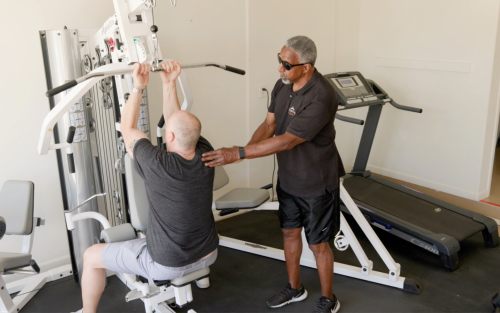





Soberman's Estate
This provider's information has been quality-checked by Recovery.com's Research Team for accuracy and completeness, including center verification through appropriate third-party organizations.
Treatment Focus
This center treats primary substance use disorders and co-occurring mental health conditions. Your treatment plan addresses each condition at once with personalized, compassionate care for comprehensive healing.
Primary Level of Care
Offering intensive care with 24/7 monitoring, residential treatment is typically 30 days and can cover multiple levels of care. Length can range from 14 to 90 days typically.
Treatment Focus
This center treats primary substance use disorders and co-occurring mental health conditions. Your treatment plan addresses each condition at once with personalized, compassionate care for comprehensive healing.
Primary Level of Care
Offering intensive care with 24/7 monitoring, residential treatment is typically 30 days and can cover multiple levels of care. Length can range from 14 to 90 days typically.
Provider's Policy
Soberman’s Estate does not accept state insurance, AHCCCS, Medicaid or Medicare. Soberman’s Estate is able to bill most insurance plans as an out-of-network provider. We will gladly determine your out-of-network benefits available through your insurance plan. If you are eligible for out-of-network benefits, we will help calculate your out-of-pocket costs and potential reimbursement.
Soberman's Estate
Soberman's Estate
About Soberman's Estate
Soberman’s Estate is a state-licensed, nationally accredited, world-class residential treatment center for adult men seeking discreet, sophisticated treatment for alcoholism, substance use, and co-occurring mental health disorders such as trauma, anxiety, depression, stress, or other addictions. They provide a customized blend of evidence-based and holistic therapies that equip each man to live a better life for the rest of his life.
Accelerate Change with a Customized Plan
With over 30 staff attending to an average of 7 clients, each man receives a highly individualized treatment plan designed by Soberman’s medical and clinical directors. In addition to at least three weekly 1-on-1 counseling sessions and daily group therapy, clients explore modalities including accelerated resolution therapy (ART) and dialectical behavior therapy (DBT). With 2 psychiatrists and 5 licensed professional counselors on site, Soberman’s Estate determines what works most effectively for each client.
Recharge in a Comfortable Setting
Soberman’s Estate has 8 private rooms, all with ensuite bathrooms, custom-made presidential suite mattresses, smart TVs with extensive streaming options, and a putting green—all within a peaceful 5-acre estate framed by the Sonoran Desert. Clients enjoy nourishing, made-from-scratch meals tailored to their dietary restrictions and preferences by 2 full-time chefs, using fresh eggs from the estate’s chickens and produce from the on-site greenhouse.
Get Support for a Lifetime
Upon completion of residential treatment, clients become members of Soberman’s Estate’s discreet alumni fellowship, which offers virtual and in-person recovery meetings, newsletters, and gatherings. Clients and their family members also receive lifetime complimentary support, helping men continue to enjoy life without self-medicating. Each client receives a thorough continuum of care plan and referrals to outpatient providers, medical professionals, and individual therapists who continue therapies established at Soberman’s Estate.

Highlights from the Center
Highlights
These highlights are provided by and paid for by the center.
Private Rooms Available
3+ Individual Sessions a Week
Men Only
Executive Treatment
Center Overview
Treatment Focus
This center primarily treats substance use disorders, helping you stabilize, create relapse-prevention plans, and connect to compassionate support.
Joint Commission Accredited
The Joint Commission accreditation is a voluntary, objective process that evaluates and accredits healthcare organizations (like treatment centers) based on performance standards designed to improve quality and safety for patients. To be accredited means the treatment center has been found to meet the Commission's standards for quality and safety in patient care.

Insurance Accepted
Cash Pay Rates
Estimated Cash Pay Rate
Center pricing can vary based on program and length of stay. Contact the center for more information. Recovery.com strives for price transparency so you can make an informed decision.
Recovery.com Verified Listing
Recovery.com verified that the name, location, contact information and license to operate for this treatment provider are valid and up-to-date.

Joint Commission Accredited

Licensed by Arizona DHS

NAATP Member
Recovery.com is an independent, third-party mental health resource. Verification does not imply endorsement and does not guarantee the quality of treatment services.
Meet your care team

Mitchell T. Prager
Founder and Chief Executive Officer

Michael Vines
Psychiatrist
MD

Thomas Gazda
Medical Director
MD, FAPA

Jodi Stone
Clinical Director
MA, LPC
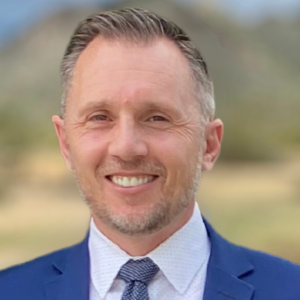
Alin Calini
Assistant Clinical Director & Primary Therapist
Masters in Counseling
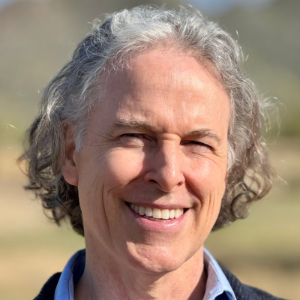
Dr. Kevin Dalton
Therapist
Ph.D Philosophy, LMSW

Jen Anderson
Clinical Therapist
MA, NCC, LPC

Lorraine Sanzari
Operations Manager

Coach Carl Hargrave
Fitness Coach
Former NFL Coach

Janice Story
Equine & Meditation Coach
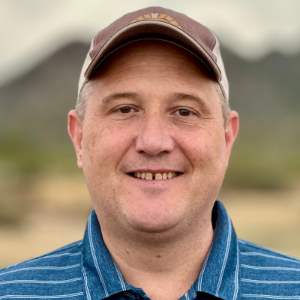
Justin Fisse
Director of Admissions and Community Outreach

Tyler Haugebak
Overnight Manager
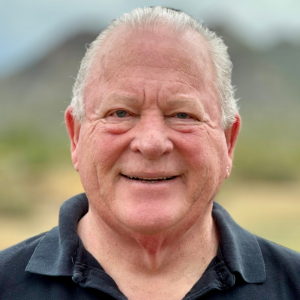
Marty Libman
Client Relations Coordinator
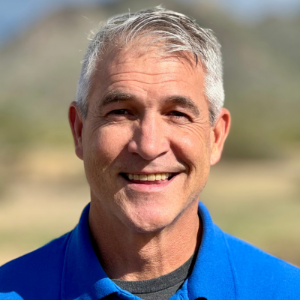
Brady Luke
Client Relations Coordinator

Charlena Galati
Client Relations Coordinator
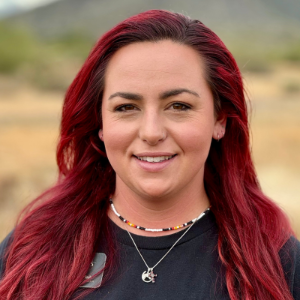
Jessica Steinbrink
Client Relations Coordinator

Tawnee Bartlett
Client Relations Coordinator

Nicole Transgurd
Client Relations Coordinator
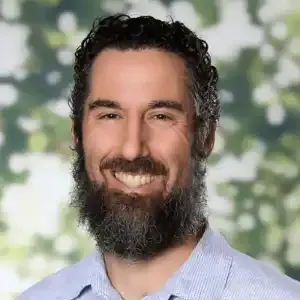
Rabbi Dr. Chaim Meyer Tureff
Spiritual Group Facilitator

Diana Gogan
Medicine Wheel and Spiritual Group Facilitator
Linguistic Programming (NLP) Master Coach, Equine Assisted Coaching Professional, Reiki Master/Teacher, Shamanic practitioner

Steve Inganamort
Music Thrapist




Treatment
Specializations
Depression
Symptoms of depression may include fatigue, a sense of numbness, and loss of interest in activities. This condition can range from mild to severe.
Co-Occurring Disorders
A person with multiple mental health diagnoses, such as addiction and depression, has co-occurring disorders also called dual diagnosis.
Drug Addiction
Drug addiction is the excessive and repetitive use of substances, despite harmful consequences to a person's life, health, and relationships.
Executives
Executive treatment programs typically directly support the needs of people who manage businesses and may provide flexible schedules and office space to allow work during treatment.
Alcohol
Using alcohol as a coping mechanism, or drinking excessively throughout the week, signals an alcohol use disorder.
Who We Treat
Executives
Executive treatment programs typically directly support the needs of people who manage businesses and may provide flexible schedules and office space to allow work during treatment.
Professionals
Busy, high-ranking professionals get the personalized treatment they need with greater accommodations for work, privacy, and outside communication.
Treatment Services
Residential
In a residential rehab program, patients live onsite, with access to daily treatment and 24-hour care. An average stay is 30-90 days.
Approaches
Gender-Specific
Separate treatment for men or women can create strong peer connections and remove barriers related to trauma, shame, and gender-specific nuances.
Holistic
A non-medicinal, wellness-focused approach that aims to align the mind, body, and spirit for deep and lasting healing.
Evidence-Based
A combination of scientifically rooted therapies and treatments make up evidence-based care, defined by their measured and proven results.
Individual Treatment
Individual care meets the needs of each patient, using personalized treatment to provide them the most relevant care and greatest chance of success.
Therapies
Seeking Safety
Not looking to the past, patients improve their present circumstances. They work toward safety without detailing traumatic events.
Stress Management
Patients learn specific stress management techniques, like breathing exercises and how to safely anticipate triggers.
Spiritual Care
Tending to spiritual health helps treatment become more effective, allowing patients to better cope with their emotions and rebuild their spiritual wellbeing.
1-on-1 Counseling
Patient and therapist meet 1-on-1 to work through difficult emotions and behavioral challenges in a personal, private setting.
Family Therapy
Family therapy addresses group dynamics within a family system, with a focus on improving communication and interrupting unhealthy relationship patterns.
Equine Therapy
Guided interactions with trained horses, their handler, and a therapist can help patients improve their self-esteem, trust, empathy, and social skills.
Conditions We Treat
Post Traumatic Stress Disorder
PTSD is a long-term mental health issue caused by a disturbing event or events. Symptoms include anxiety, dissociation, flashbacks, and intrusive thoughts.
Anxiety
Anxiety is a common mental health condition that can include excessive worry, panic attacks, physical tension, and increased blood pressure.
Depression
Symptoms of depression may include fatigue, a sense of numbness, and loss of interest in activities. This condition can range from mild to severe.
Grief and Loss
Grief is a natural reaction to loss, but severe grief can interfere with your ability to function. You can get treatment for this condition.
Codependency
Codependency is a pattern of emotional dependence and controlling behavior. It's most common among people with addicted loved ones.
Gambling
Excessive, repetitive gambling causes financial and interpersonal problems. This addiction can interfere with work, friendships, and familial relationships.
Internet Addiction
Internet addiction is common among children teens. This compulsive disorder can damage relationships, school performance, sleep habits, and physical health.
Personality Disorders
Personality disorders destabilize the way a person thinks, feels, and behaves. If untreated, they can undermine relationships and lead to severe distress.
Stress
Stress is a natural reaction to challenges, and it can even help you adapt. However, chronic stress can cause physical and mental health issues.
Bipolar
This mental health condition is characterized by extreme mood swings between depression, mania, and remission.
Substances We Treat
Cocaine
Cocaine is a stimulant with euphoric effects. Agitation, muscle ticks, psychosis, and heart issues are common symptoms of cocaine abuse.
Prescription Drugs
It's possible to abuse any drug, even prescribed ones. If you crave a medication, or regularly take it more than directed, you may have an addiction.
Benzodiazepines
Benzodiazepines are prescribed to treat anxiety and sleep issues. They are highly habit forming, and their abuse can cause mood changes and poor judgement.
Ecstasy
Ecstasy is a stimulant that causes intense euphoria and heightened awareness. Abuse of this drug can trigger depression, insomnia, and memory problems.
Co-Occurring Disorders
A person with multiple mental health diagnoses, such as addiction and depression, has co-occurring disorders also called dual diagnosis.
Drug Addiction
Drug addiction is the excessive and repetitive use of substances, despite harmful consequences to a person's life, health, and relationships.
Chronic Relapse
Consistent relapse occurs repeatedly, after partial recovery from addiction. This condition requires long-term treatment.
Heroin
Heroin is a highly addictive and illegal opioid. It can cause insomnia, collapsed veins, heart issues, and additional mental health issues.
Languages
Aftercare
Experience
Personal Amenities
Amenities
Special Considerations
Healthy Meals are provided
Great food meets great treatment, with providers serving healthy meals to restore nutrition, wellbeing, and health.
Gender-specific groups
Patients in gender-specific groups gain the opportunity to discuss challenges unique to their gender in a comfortable, safe setting conducive to healing.
Religion-Based Track
Patients can join faith-based recovery tracks to approach recovery with others in their faith, healing in a like-minded group with similar goals.
First Responders Program
Paramedics, police officers, firefighters, and others join in a specific First Responders program, usually focused on trauma, grief, and work-life balance.
Activities
Yoga
Yoga is both a physical and spiritual practice. It includes a flow of movement, breathing techniques, and meditation.
Off-Site Activities

Learn More About the Center
Sample Schedule
Explore how each day at Soberman’s is designed to restore structure, balance, and momentum from the inside out.
Emotional Regulation is the New Superpower
Discover how mastering emotion leads to strength, confidence, and lasting internal stability.
Building a Recovery Lifestyle You Actually Enjoy
Learn how to design a daily rhythm that supports healing—and feels genuinely fulfilling.
Overcoming Emotional Numbness
Break through the fog and reconnect with feeling, meaning, and emotional clarity.
What people are saying
Accommodations
Food & Nutrition
Treatment
Value
Pros
- Luxurious Accommodations (5)
- Personalized (3)
- Gourmet & Nutritious Food (5)
- Flexibility to Work (4)
See More
Jimmy B
Rob K.
Brad
Buck
Frank
We love hearing about your treatment experience
Help individuals and families seeking treatment by sharing your first-hand experience with this treatment provider. Review Guidelines.





